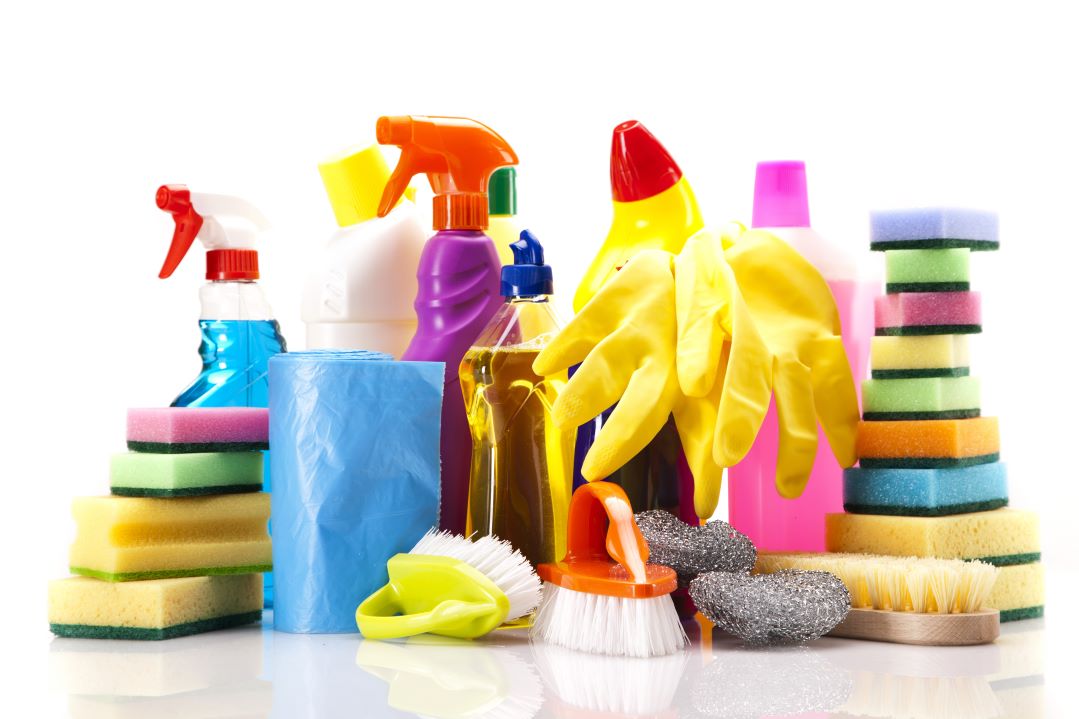Pesach Prep with the Pros: Week 1

With the busiest season of the Jewish year upon us, how can we balance all of our responsibilities while still nurturing our homes, our children, our husbands, and our spirituality?

Week 1: Hit the Ground Running
Your Home
Putting the Tension Down on Paper
Yael Wiesner, home management consultant and author of “How Does SHE Manage?” (Feldheim Publishers):
The morning after Purim, I like to make myself a detailed schedule for the next month that includes cleaning, shopping, and meal planning. This puts all the tension on the paper and gets it out of my head. Even though I probably won’t end up sticking to my schedule (do we ever?), I have what to work with. It also prevents that feeling of Hmm, what should I do today? If I see I can’t do it all, I know I either need to cut back or get help.
In the weeks after Purim, I start the jobs that don’t interfere with day-to-day living. I’ll separate the chometz in the pantry from the non-chometz; defrost my freezer; take my kids shopping for Yom Tov clothing; and clean a few of the easily washed toys, like Clics, putting them away so they’ll be fresh for Pesach.
I’ll start cleaning the bedrooms, the upper kitchen cabinets, and the bathrooms, but nothing that interferes with my family’s normal functioning. To clear up time for Pesach cleaning, I’ll hire a babysitter in the afternoons, or I’ll eliminate fancy dinners and company for Shabbos. Also, when I cook for Shabbos, I cook double and put half in the freezer for the week before I turn over my kitchen.
Some stages in life don’t allow us the luxury of all this work. If you’re expecting, right after birth, or recuperating from surgery, take a minimalist approach and don’t clean all the closets. Instead, set aside a closet or two for the week of Pesach and put inside a week’s worth of clothing for every family member. You can close off your basement, playroom, den, and any other room that you feel you can manage without for a week. Check with your rav on how to do this.
Remember, it’s not the Pesach cleaning that’s hard, it’s all the peripheral details (feeding the kids, spring cleaning, staying on top of laundry) that stress us out. If we plan for these details ahead of time, everything else can fall into place.
Your Children
Unrealistic Expectations
Rabbi Allon Yisroel Bruckenstein, educational psychologist:
We often launch our Pesach cleaning with unrealistic expectations of all the parties involved — ourselves, our spouses, and our children. Just a few days into the cleaning, you may find yourself saying things like, “Why is the whole burden on me? Why can’t anyone else pitch in around here?” Obviously, this is counterproductive. If we want our children to help with the cleaning, we have to ask them to contribute in a way that makes them feel respected and appreciated. Just as we, as parents, get resentful when we feel we’re being taken advantage of, so will our children.
This doesn’t mean that we have to devise elaborate prizes, treats, or outings to get our kids to cooperate. Usually positive feedback and genuine appreciation is enough. If we really mean it, our children will know that we value their involvement … and eventually we’ll hear them expressing their appreciation back to us.
If you do find yourself losing it, don’t waste time and energy feeling guilty afterward. Instead, take a break to regain your equilibrium. Go out for some fresh air or take the kids to the park to break the tension. Give yourself — and your kids — a chance to restart.
Your Marriage
Gaining Clarity over Coffee
Mrs. Yitti Bisk, marriage educator:
Can your marriage handle the stress of the biggest homemaking project of the year? If you’ve been putting in regular “deposits” in the “bank” throughout the year, by nurturing your marriage in a myriad of small but tangible ways, it can.
Although it’s normal to feel frazzled before Pesach, we can’t take our husbands for granted just because we’re stressed out. Make sure to notice what your husband does for you and express appreciation for it, and carve out time — even if it’s just ten minutes a day — to focus on your relationship.
If you need your husband’s help with cleaning, ask yourself: Is he on board with pitching in? Does he know what’s expected of him? If the answer is “I’m not sure,” make a date over a cup of coffee and present the situation objectively. “There’s a lot to get done, and I’m feeling overwhelmed. How can you help with x, y, and z? What can you do to help us get through this hectic time?”
Listen (really listen!) to his answer. It might not be “your way” of Pesach cleaning, but it can have merit. Your husband may also have some very valid reasons for not helping as much as you want him to. Try to work together toward a clear understanding of how things will get done in a way that best meets both of your needs. At the end of the day, though, you may have to scale back on your list so that it only includes essentials, or enlist the help of a third party, whether it is your cleaning lady or willing and able bochurim.
Your Ruchniyus
Working for a Lofty Cause
Rebbetzin Devora Berson, popular seminary teacher and lecturer:
Rav Shimshon Pincus teaches that when a person is working for a lofty cause, she doesn’t feel it’s a burden; instead, it’s a privilege. Cleaning our homes for Pesach is a cause that’s both liberating and uplifting — when we view it in the right way. Someone has to do the cleaning, and it’s our privilege to make sure it gets done.
One thing that helps me get in the right frame of mind is concentrating on the end results — how the house will sparkle, how everyone will enjoy sitting down at the Seder together. It’s an avodah that leads to fulfillment and joy on both a personal level and a mitzvah level. There are women who listen to shiurim or music as they scrub, to make the work go more quickly. And, of course, our main avodah at this time of year is to stay calm, to keep things under control, and to ensure that the cleaning is done in the right spirit so that it doesn’t become too onerous.
Finally, don’t forget to make time for yourself in the midst of all the cleaning. If you wait until everything is finished, you’ll never get a break, because the cleaning is endless. Carve out breaks for yourself throughout these weeks to prepare for the other aspects of Yom Tov — whether it’s sitting down with a sefer if you’re so inclined, or planning a family get-together for Chol HaMoed. I enjoy preparing an arts-and-crafts project with my children for the Seder … more about that next week.
(Originally featured in Family First Issue 331)
Oops! We could not locate your form.







